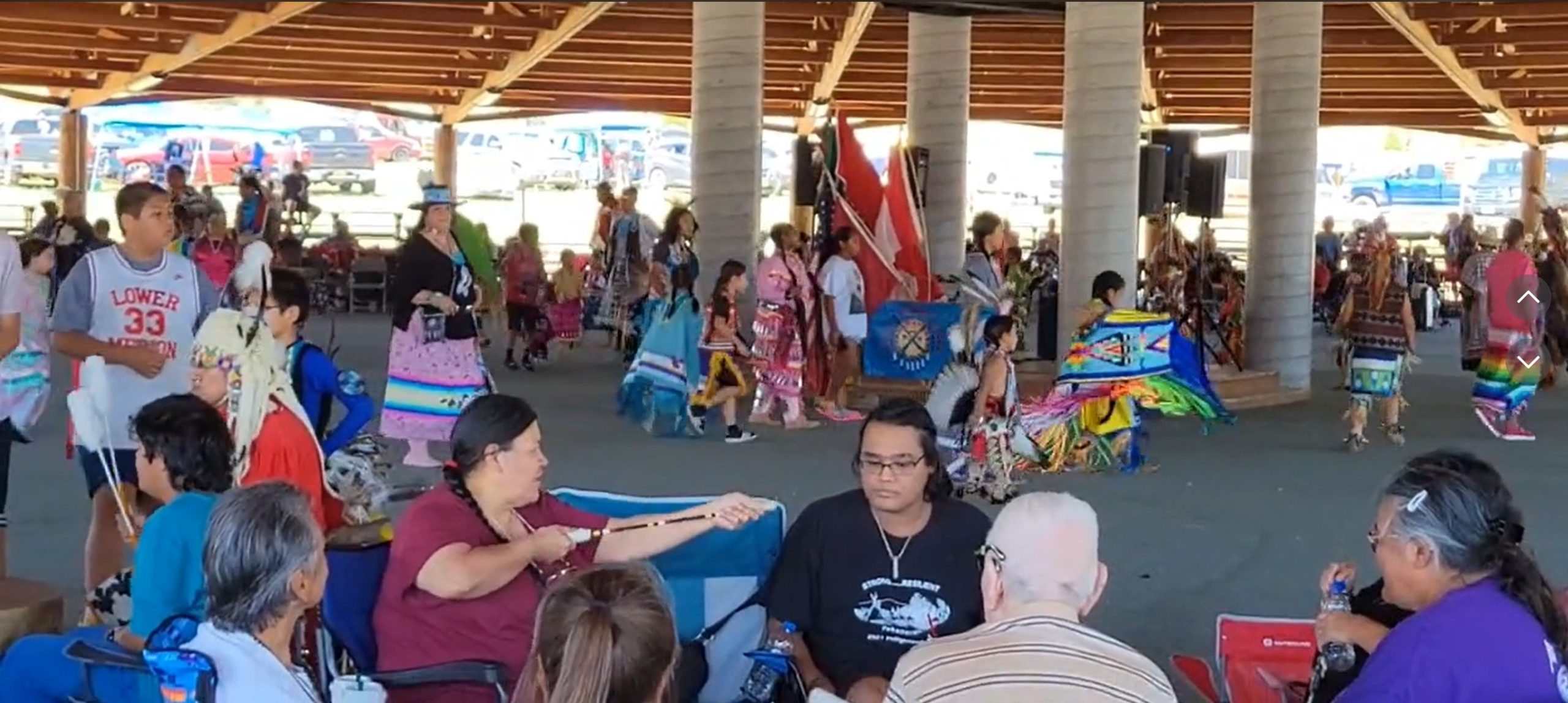Podcast: Play in new window | Download | Embed
Gov. Kristi Noem (R-SD) is calling on tribes to join law enforcement agreements with the state to address public safety issues and jurisdictional loopholes on reservations.
As SDPB’s Lee Strubinger reports, her call comes amid tense relations between the Noem Administration and tribal governments.
Tribal police don’t have jurisdiction over non-tribal members.
“It is impacting every single community in this state. I’m hopeful we can get new partnerships with tribal leaders that will want to work together to enforce tribal law and to bring law an order to areas in a way we haven’t done before.”
Gov. Noem made the comments during a press conference Friday morning, where she continues to urge tribes to banish cartels instead of her.
Some tribal leaders say Gov. Noem should apologize for comments she made in March about native children and parents.
They say an apology could lead to constructive dialogue between the state and tribes.
Former State Rep. Troy Heinert (Sicangu Lakota/D-SD) is now president of the Intertribal Buffalo Council.
He says lack of public safety issues are well known and tribes need allies in advocating for federal funding.
“She’s burned so many bridges on so many other issues and hasn’t shown any type of respect to tribes. The message for more funding for public safety is coming from all sides–sometimes it’s in how you say it.”
The Oglala Sioux Tribe is suing the federal government for its public safety funding formula.
 Secretary of the Interior Deb Haaland (Laguna Pueblo) visited Southern California last week, where she met with federal, state, Tribal, and local officials – and community members.
Secretary of the Interior Deb Haaland (Laguna Pueblo) visited Southern California last week, where she met with federal, state, Tribal, and local officials – and community members.
According to the Interior department, she was there to learn about their vision for conserving the areas natural and cultural resources and exploring energy options through the proposed establishment of Chuckwalla National Monument and the expansion of Joshua Tree National Park.
Sec. Haaland met with local elected leaders, business owners, and others who’ve helped shape the proposal.
She also announced new funding from the Biden Administration to clean up orphaned oil and gas wells – and the next phase in the department’s orphaned well clean-up program through matching grants.
 Forge Project, a Native-led non-profit organization that works to cultivate and advance Indigenous leadership in arts and culture, recently announced six winners of its 2024 fellowship.
Forge Project, a Native-led non-profit organization that works to cultivate and advance Indigenous leadership in arts and culture, recently announced six winners of its 2024 fellowship.
Jazz trumpeter, composer, and educator Delbert Anderson (Navajo), documentary filmmaker Schon Matthew Duncan (United Keetoowah Band of the Cherokee Indians), basket maker Donna Hogerhuis (Stockbridge-Munsee Mohikan), award-winning filmmaker Lindsay McIntyre (Inuit), artist and sculptor Mikayla Patton (Oglala Sioux Lakota), and Sterling Anthony Schreiber (Stockbridge-Munsee), an advocate for food sovereignty and food security, are the recipients.
They’re being recognized as a diverse group of Indigenous thinkers, artists, and activists working in Native North America.
In a statement, Forge Project Director of Indigenous Programs and Relationality Sarah Biscarra Dilley said they look forward to supporting the recipients time in residence, to take uninterrupted time to work, engaging others through a public or invitation-only program, or to rest.
Each Forge Project Fellow receives a $25,000 grant and has access to the Forge Project site, libraries, and collection of contemporary art by Indigenous artists during three-week rotating fellowships.
Get National Native News delivered to your inbox daily and stay up-to-date on the 2024 Native Vote. Sign up for our daily newsletter today.










 The Mashantucket Pequot Museum and Research Center in Connecticut has reopened after construction.
The Mashantucket Pequot Museum and Research Center in Connecticut has reopened after construction.

 The book A Cloud Over the Land tells the story about how the Burt Lake Band lost their land, but also about the fight to get it back.
The book A Cloud Over the Land tells the story about how the Burt Lake Band lost their land, but also about the fight to get it back.




 On Monday, Assembly Speaker Robert Rivas (D-CA) called upon Assemblymember James Ramos (Serrano/Cahuilla/D-CA) to deliver the first land acknowledgement to recognize area tribes on whose lands the state Capitol stands prior to opening of an assembly floor session at the California Session.
On Monday, Assembly Speaker Robert Rivas (D-CA) called upon Assemblymember James Ramos (Serrano/Cahuilla/D-CA) to deliver the first land acknowledgement to recognize area tribes on whose lands the state Capitol stands prior to opening of an assembly floor session at the California Session.